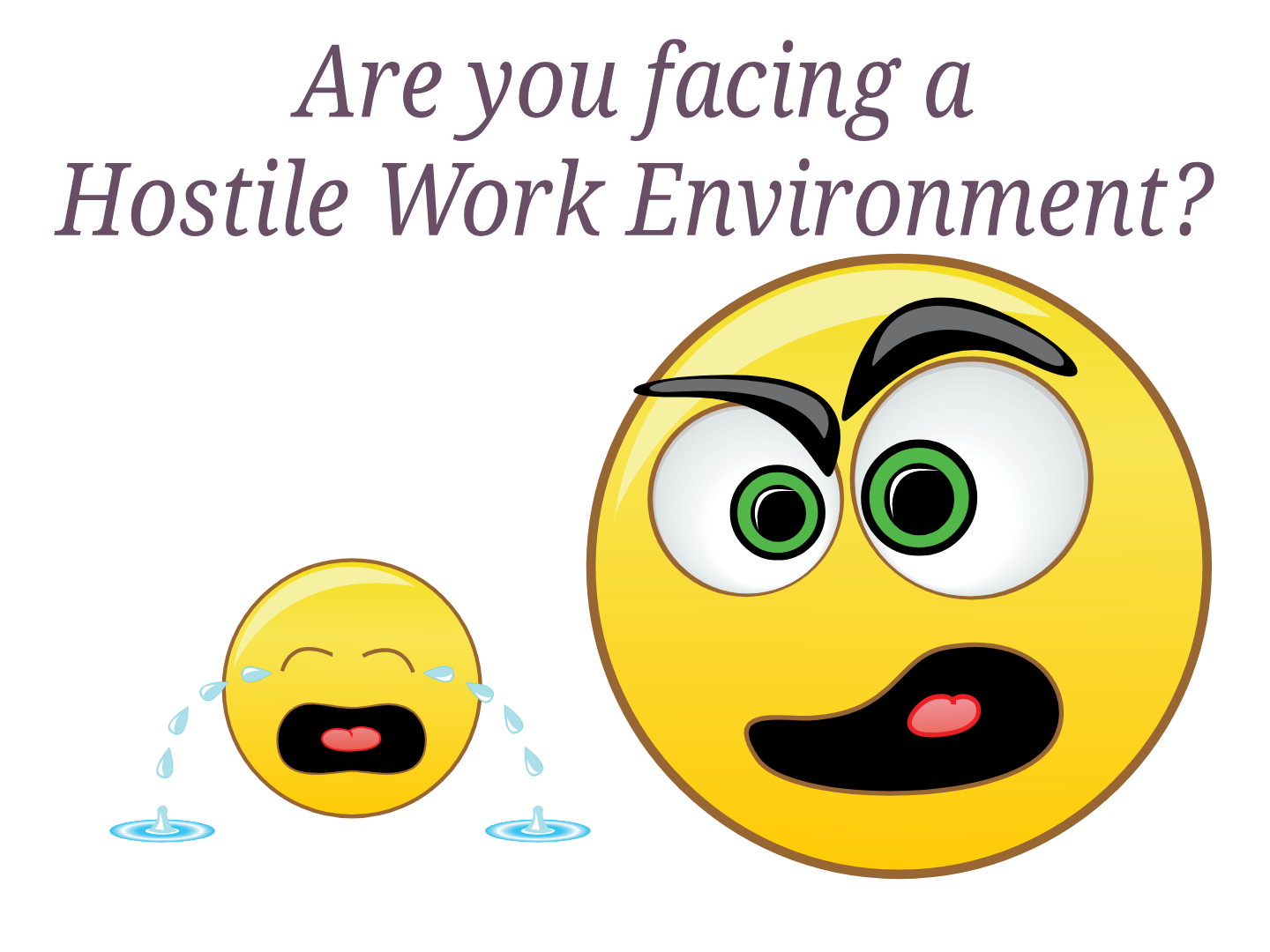- Free Consultation: (631) 352-0050 Tap Here to Call Us
Hostile Work Environments: Severe or Pervasive Standard Reviewed by Court

Are you facing a hostile work environment? You may think so, but courts may not agree. Employment law requires employees to show that they faced severe or pervasive abusive conduct in the workplace, to prove a hostile work environment claim. What is severe or pervasive conduct? Today’s Long Island employment law blog explains.
Courts have long stated that their role is not to keep workplaces civil. So, many employees may believe their bosses and/or coworkers are mistreating them, but the law would not regard the conduct as unlawful. Employment laws only prohibit abusive conduct which is directed at employees based on the employee’s protected characteristics, such as sex, gender, race, or national origin. Moreover, the conduct must be severe or pervasive. The legal definition of severe of pervasive has been settled for a while, but because it’s a somewhat of a nebulous definition, courts and lawyers sometimes have trouble discerning when conduct meets that standard.
In Fox v. Costco, decided on March 6, 2019, the Second Circuit provided insight into questions. First, can an employee claim he subjected to a hostile work environment based on a disability? Second, what kind of conduct can be severe or pervasive. Let’s take the questions in turn.
Title VII is the employment discrimination statute which prohibits discrimination based on sex, gender, race, national origin, and religion. The Supreme Court has, on several occasions, determined that discrimination under Title VII includes when an employee is subjected to a hostile work environment. But, the Supreme Court has not considered whether the disability statute, the ADA, also allows employees to bring claims of a hostile work environment.
The Second Circuit, New York’s federal court, has not decided the question either. But, other appellate courts across the country have decided that the ADA prohibits hostile work environments based on disability. In Fox, the Second Circuit agreed with these other appellate courts and similarly concluded that the ADA prohibits hostile work environments. The court was persuaded by the other appellate courts’ reasoning, but also agreed independently that since the ADA borrowed Title VII’s language, and the Supreme Court has read Title VII to mean that hostile work environments are unlawful, then the ADA similarly prohibits hostile work environments.
Fox, though, faced another hurdle. His claims were dismissed by the trial court because the judge determined that the conduct he faced was not severe or pervasive. To be severe, a single incident must be “extraordinarily severe.” In other words, one derogatory comment may not be enough, but a sexual assault should be more than sufficient. But, conduct can also be pervasive, if it was continuous enough to alter the employee’s working environment. So, one derogatory comment may not be enough, but if an employee faces derogatory comments every day over the course of months, the conduct be pervasive.
In Fox, the employee testified that his co-workers made comments mocking his tourette syndrome. He further testified that the co-worker’s mocked him “for months and months.” The trial court dismissed the claim because the judge believed the law required Fox to establish the number of time he heard the comments in a shift or per week. But, the Appellate Court said this was the wrong standard. The court said the employee is not required to identify the specific shift, week or month when he heard the comments and his testimony that the conduct persisted for months and months was sufficient.
The court was also persuaded to rule in Fox’s favor because his supervisor’s heard the comments and did nothing. Thus, the conduct could be imputed to the employer, another necessary showing for a hostile work environment case.
The Fox case provides a thorough analysis of the level or proof an employee needs to prove a hostile work environment claim. It also settles the question of whether a hostile work environment claim can be asserted under the ADA.
If you have questions about a hostile work environment, the Fox decision, or disability discrimination laws, contact a Long Island disability discrimination lawyer of Famighetti & Weinick PLLC at 631-352-0050. Our website is http://linycemploymentlaw.com.
ADA Hostile Work Environment









